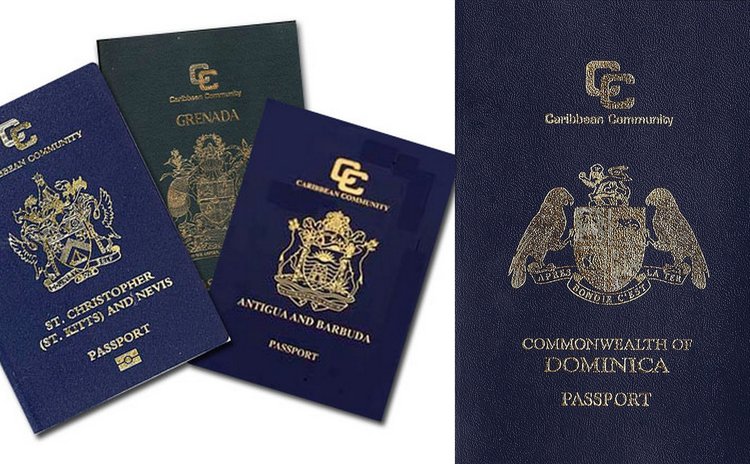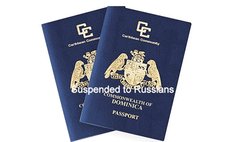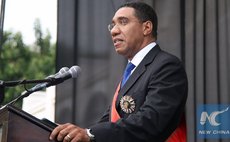The real challenge of citizenship programmes

A few days into the New Year, St Lucia's Prime Minister, Allen Chastanet, suggested that all five of the Eastern Caribbean nations that sell Citizenship by Investment (CBI) should develop a joint approach through the OECS secretariat.
His proposal, which is unlikely to be adopted, came amid a flurry of comments that followed a potentially damaging US television report about Caribbean citizenship programmes
The documentary 'Passports for Sale', aired on CBS' flagship investigative news programme '60 minutes'. Focussing on the CBI programmes of St Kitts, Antigua, and Dominica, it criticised their approach for not being transparent enough, not paying enough attention to due diligence when it came to checking an applicant's background, and for having, in the past, "attracted among the buyers, a rogue's gallery of scoundrels, fugitives, tax cheats, and possibly much worse".
Following the broadcast, Caribbean governments and those involved in selling citizenship reacted, observing that the broadcast's content were inaccurate, presented a view that was dated, and did not give weight to the economic benefits that citizenship programmes brought.
In a balanced response, the head of the St Kitts-Nevis Citizenship by Investment Unit, Les Khan, told WINN FM that the programme makers had "stood still in time" and that the comments made did not take into consideration all the changes government had made since 2014. He also noted that interviews conducted with risk management companies addressing aspects of the due diligence process had not been broadcast.
Dominica's Prime Minister, Roosevelt Skerrit, however, went further. Reacting to criticism levelled by the programme he told the Caribbean media: "We view this as a beginning of a likely ongoing campaign to undermine and destabilise the economic well-being of Dominica, through the dismantling of its citizenship by investment programme."
Despite this and the shortcomings of 60 minutes' analysis, the programme and the subsequent furore illustrated the perceptual and real challenges that OECS nations face when it comes to citizenship programmes, and their controversial nature in and beyond the Caribbean.
Many politicians and citizens in the region object in principle to the idea that nationality is something that can be sold; finding unacceptable the granting of rights and free movement within CARICOM to those who are not required to reside, make no long-term contribution, and who have no historic or cultural affinity.
Externally too, doubts exist, but for other reasons. While officials in North America and Europe make clear they have no objection to well-run citizenship-by-investment schemes as they operate ones of their own, they say that they remain concerned enough to be prepared to introduce sanctions against any nation unable to ensure their programmes meet international requirements.
They do however recognise the potential economic benefits of the kind noted by Antigua's Prime Minister, Gaston Browne, who told 60 Minutes' presenter that his country's scheme had brought economic benefits, enabling government to address issues of debt and possible default, and to be able to turn the economy around.
Unfortunately, what sixty minutes' sometimes sensationalist approach did not touch on were the real challenges, and the many unanswered questions that exist about the sustainability and long-term implications of Caribbean citizenship programmes.
For example, at a purely economic level it is hard to understand why such schemes are not designed to be sustainable in ways that bring continuing income to the country concerned. Without any residency requirement, there is no long-term gain in the form of other taxes or fees. Moreover, in the absence in some nations of the equivalent of an independently managed sovereign fund able to receive fees from citizenship, such programmes remain unrelated to long term infrastructural, education or public health needs.
Secondly, the willingness of some countries to grant citizenship to future generations, as well as to the applicants, means that not only is there no long-term benefit from the passport holder's descendants, but also the issuing nation concerned has little or no idea about the identity or nature of a growing number of its future citizens.
Thirdly, the real danger remains that should it be discovered that a passport has been issued to someone who is on a terrorism watch list or worse, not only will that country suffer severe sanctions, but ordinary citizens may face blanket requirements for visas where none previously existed.
And fourthly there are now signs that a race to the bottom has begun as countries undercut the pricing of neighbours to try to maintain the number of new registrations and revenues.
In a demonstration of this, just before Christmas St Lucia announced its intention to halve the cost to single individuals to US$100,000, and to adjust downwards the fee for other categories, making the country's programme the cheapest in the region. Government also lifted a previous self-imposed limit on the number of applications that can be processed annually, and revoked previous requirements relating to an applicant's net worth.
Subsequently, at a press conference, in justification St Lucia's Prime Minister indicated that other countries are now offering discounts or incentives, and appeared to suggest that the overall market for Caribbean citizenship was contracting.
Other problems requiring resolution also remain. There is a lack of clarity in some nations about the projects that donations – the preferred route for most applicants – are applied to; there is a plethora of sales agents globally and a need to regulate their activities; few OECS governments join up their promotional efforts with developers to encourage investment into areas of social priority; in some nations, opposition parties allege impropriety in relation to who benefits; high risk investment vehicles are being approved; and most schemes still lack full transparency.
International views on money laundering, global security and transparency continue to evolve making it likely that countries offering economic citizenship will become the subject of more intense international scrutiny.
It would be wise therefore, for the region as a whole to consider carefully how best to balance the desire to create new sources of government revenue, with the wider implications and reputational risk posed by any programme that remains opaque.
David Jessop is a consultant to the Caribbean Council and can be contacted at
david.jessop@caribbean-council.org
Previous columns can be found at www.caribbean-council.org
January 13th, 2017



